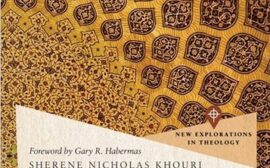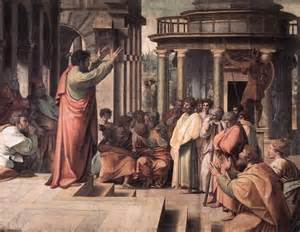By: Sherene Khouri | March 19, 2022
The Ukrainian war is bringing many memories to my mind about the Syrian war. Nine years ago, my husband and I left Syria and became refugees without home or a land to call it home. In 2011, the conflict between the Syrian government and multiple opposing factions including the Islamic state broke out and its effect is still on. The war resulted in 6.5 million people internally displaced, 6.72 million refugees left the country,[1] and 350,000 died.[2] The economic situation impoverished people quickly. Millions of people inside Syria need urgent humanitarian assistance. Recently, the United Nations expressed its concern about the economic crisis, which is making food increasingly unaffordable.[3]
Jan Egeland, Secretary General of the Norwegian Refugee Council, briefed the Council, saying “that although Syria has faded from international headlines, the situation on the ground has gotten dramatically worse, with armed conflict wreaking death, destruction and displacement; a socioeconomic crisis, exacerbated by drought; and humanitarian work impeded by numerous barriers.”[4]
Like Ukrainians, my husband and I had to leave our country and became homeless, jobless, churchless, and futureless overnight. We left our house, family, and friends not knowing when, where, or whether we will see them again. While living in United States for the last nine years, I lost my father. He passed away and I couldn’t travel to pay my tribute or say farewell to him due to Covid-19 restrictions. The airline cancelled all flights in spring/summer 2020 and my dad passed away in November 2020.
Probably, many Ukrainians will go through similar circumstances because of the catastrophic war. My intention from this article is not to steal the thunder from the Ukrainian church, but to bring to light three major fundamentals Christians practiced during the Syrian war, which proved to be helpful and prosperous. Usually, war brings the worst in humanity because of the disastrous conditions that people find themselves in. People find it hard to start from scratch in a foreign country due to lack of resources, such as language, education, and career related skills. I have witnessed people selling their children for body organs, others worked in prostitution, and many committed suicide.
The Syrian church stood in the gap and did not fall for fear or destruction by doing three major things:
1. Lesson of Fasting:
-
- In comparison to the Eastern Orthodox Church, I have noticed that the evangelical churches do not put much emphasis on fasting. I don’t know when was the last time I heard on the radio a sermon about fasting. The Eastern churches, on the contrary, have special calendar days for fasting, which includes several days of the year. The longest one is the Easter Fasting (also called the Fortieth Fasting), which last for more than 40 days. However, influenced by the Eastern Church, the Evangelical Church in Syria always taught about the importance of fasting.
- During the war times, the church declared open period of fasting. Believers started fasting and praying 24/7 by taking turns and shifts. When people fast, their focus reside on God—his attributes and his sovereignty. Fasting helps believers reflecting on God’s omnipotence, omnipresence, and omniscience. Believers learn more about God’s glory and presence in their midst, which gives them the courage and the ability to seek his deliverance and protection from the enemy instead of being crippled by fear.
- It is very hard for civilians who love their country to see it shattering by hate and despise. By fasting, believers seek God’s guidance as this phase in their life bring many fatal decisions to make. In 2 Chronicles 20:3-4, the Holy Spirit records how Jehoshaphat and the tribe of Judah fasted when the Moabites, Ammonites, and some of the Meunites came against them in war. They sought God’s guidance of what to do regarding these nations. Similarly, in war circumstances, Christians have many decisions to make regarding whether they stay in the country and carry on the ministry work, or whether they leave seeking a better life for their families. If they have the option, do they participate in the fight or do they cease? If they decided to leave, what resources are open to them? All these questions and many more are real and require wise decisions that only God can provide.Praying:
2. Lesson of Praying:
During the first few years of the war, the church prayed for the country 24/7. Different shifts of men and women were created to pray around the clock seven days a week twenty-four hours a day. Believers prayed for the safety of church members because the mortar shells were falling on residential neighborhoods. They prayed for financial situation and for those who lost their jobs or their family providers. The Church prayed for the military members, for the soldiers who were jeopardizing their lives to protect civilians. They also prayed for those who are in high positions to receive wisdom, so people may live in peace. Believers prayed for each others to withstand, to survive, and to be courageous in witnessing to God—even if their lives were under threat. Finally, the church prayed for the repentance of the enemy, so may God free them from Satan’s deception.
3. Lesson of Glorifying God {in the midst of pain and suffering):
-
- Many opportunities were opened up for witnessing during war circumstances. During the first two years of the Syrian war, my husband and I stayed in Syria and helped the church by visiting the misplaced. One of the churches was filled with refugees coming from hot zone areas where ISIS took over, so people had to flee for their lives overnight. Many of them left with only the clothes on their backs. The church stepped in and helped these refugees, which resulted in many of them coming to Christ.
- Christians do not glorify God in good circumstances only, but in bad ones as well. Hardships draw people closer to Jesus, especially those who were postponing the idea of believing in God or those who never felt his presence in their lives. While visiting the misplaces, we met many people who showed interest in knowing more about Christianity, whereas they never felt the need to before. One person said, “I never sought God because I was doing well. Now, I need him to help me and my family.”
Fortunately, my husband and I were able to visit Syria after being in the United States for eight years. It was very encouraging to see how the church survived and how they are continuing to witness to people. On one hand, it was encouraging to see many new faces in the church and a new generation serving the Lord in many capacities. However, the damage to the mental health of people and the destruction of many buildings and churches were devastating.
Today, in the midst of economic crisis, the church continues the hard work, evangelism, investing in people and buildings, while fasting and glorifying God. As Tertullian, a church father from the 3rd century once said, “The blood of the Martyrs is the seed of the Church.” We mourn for all who lost their lives during the war; we lament with those who lost loved ones; and we glorify God in the midst of all circumstances, knowing that our hope is only in Christ.
Many encouraging reports are coming from the Ukrainian church telling how believers are pleading in prayers for their country. Those who stay are doing good and those who leave are not sinning. The hardship circumstances accompanied the church right from the beginning. As Luke, the writer of the book of Acts reminds us of, “those who were scattered [because of persecution] went about preaching the word” (Acts 8:4). And James in his prologue directs his letter “to the twelve tribes in the dispersion” (James 1:1). Many Christians in different countries, where they don’t feel safe, consider themselves refugees on this earth and they will never feel home until they reign with Jesus. Until then, we pray and mourn with the global church and with our Ukrainians brothers and sisters. May the Lord save them from the enemy’s atrocity and give them the needed wisdom, courage, and power to fight the real enemy.
About the Author

Sherene Khouri was born into a religiously diverse family in Damascus, Syria. She became a believer when she was 11 years old. Sherene and her husband were missionaries in Saudi Arabia. Their house was open for meetings and they were involved with the locals until the government knew about their ministry and gave them three days’ notice to leave the country. In 2006, they went back to Syria and started serving the Lord with RZIM International ministry. They travel around the Middle Eastern region—Turkey, Jordan, Egypt, Lebanon, Syria, and United Arab Emirates. Sherene was also involved in her local church among the young youth, young adults, and women’s ministry. In 2013, the civil war broke out in Syria. Sherene and her husband’s car was vandalized 3 times and they had to immigrate to the United States of America. In 2019, Sherene became an American citizen.
Sherene is a Ph.D. Candidate in the Theology and Apologetics program at Liberty University. She holds a Master of Art in Christian Apologetics from Liberty University and a Bachelor of Science in Biblical Studies from Moody Bible Institute. She is also working on a Master of Theology in Global Studies at Liberty University. Her specialty is answering Islamic objections to the Christian faith.
Notes
[1] M. Szmigiera, “Refugees-Major Source Countries Worldwide as of 2020,” December 23, 2021, https://www.statista.com/statistics/272999/refugees-by-source-country/
[2] United Nations: Human Rights, “Syria: 10 years of war has left at least 350,000 dead,” September 24, 2021. https://news.un.org/en/story/2021/09/1101162
[3] United Nations: The Security Council 895th Meeting, “As Humanitarian Situation in Syria Worsens, Emergency Relief Coordinator Tells Security Council ‘Failure Each Year Cannot Be Our Strategy,” January 27, 2022. https://www.un.org/press/en/2022/sc14779.doc.htm.
[4] Ibid.






[…] Source: In Honor of the Ukrainians: Lessons from the Syrian Church […]